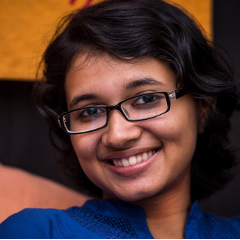How a UK-India project attempts to dramatically improve mental health in a suicide-prone Kerala

Mail This Article
Kerala is a state well known for its strong healthcare infrastructure but depression is still a challenge in the State. Even though Kerala has access to various kinds of healing practices, the stigma surrounding mental illness is widespread. Many people are reluctant to approach primary health centres owing to this stigma and the fear of discrimination.
A team of scholars and theatre artistes led by UK-based professor of mental health, Dr Raghu Raghavan of the De Montfort University in Leicester, has been trying to spread mental health literacy in Kerala for the past three years. This project titled MeHeLP (Mental Health Literacy Project) has now come to a closure and is all set for the final dissemination conference to be held as a virtual meet from October 20 to 27. Various experts from the field of mental health will discuss the findings of the project in Kerala and its further implementation in other parts of the country.
The findings are based on various activities held in urban, rural and tribal communities in Kerala and across India. “We hope the deliberations of this dissemination conference and resolutions thereof, will contribute to promoting culturally appropriate mental health literacy programmes in Kerala and across India, impacting on UN Sustainable development goals,” says Dr Raghu.
On World Mental Health Day, health minister Veena George said that almost 12.8% of Kerala's population had mental health problems that require professional help. Of those, only 15% seek medical support.
The National Mental Health Survey of India 2017 shows despite the health advances in Kerala, 14.4% of the population aged 18 and above experience mental ill-health once in their lifetime, with 12.5% of individuals with suicidal risk. This is the highest of all the states of India and is almost twice the national rate of 6.4%.
“The notion of 'mental health literacy' has been proposed as a way of improving mental health problem recognition, service utilisation and reducing stigma. Yet the idea embodies a number of medical-model assumptions which are often at odds with diverse communities' spiritual traditions and local belief systems,” says Dr Raghu.
MeHeLP India Project
MeHeLP India is a collaborative, international interdisciplinary partnership project between Indian and UK-based scholars, theatre and film makers examining the applicability and promotion of mental health literacy (MHL) in urban and rural communities. This project, held in Kerala, is the first of its kind in India.
The team used participatory theatre storytelling practices along with a theatre company, Lokadharmi, focussing on theatre-based interventions in districts of Palakkad, Kozhikode, Malappuram and Ernakulam - covering a population of 13.29 million.

The research was funded by UKRI - Economic and Social Research Council (ESRC), Arts and Humanities Research Council (AHRC) and the Global Challenges Research Fund (GCRF).
According to the study, causes of mental illness are classified into three: Medical/Psychological, Social and Religious. Medical/Psychological explanations included factors such as stress, a history of epilepsy & pregnancy. Genetics was also considered responsible for the development of mental illness in some individuals. Social explanations include drug abuse and abuse from family members. Religious explanations include the sway of black magic.
“Our findings indicate that the mental health literacy may be better understood in terms of multiple mental health literacies which people deploy in different circumstances. Even those sceptical of traditional and spiritual approaches are knowledgeable about them, and the traditional practices themselves often involve detailed regimes of activities aimed at effecting an improvement in the person’s mood or condition. Therefore, we argue it is appropriate to consider mental health literacy not as a unitary universal phenomenon but instead as a mosaic of different literacies which may be deployed in different settings and in line with different experiences and which may operate in synergy with each other to enable treatment but also facilitate a sense of meaning and purpose in life,” adds Dr Raghu.
Hand of God
“Another causative factor often discussed by participants was the concept that health and illness come from God - mental illness being God’s will,” the study states.
“One factor that hinders individuals from seeking help for the mental ill-health & defines their perceptions towards mental health is the presence of stigma. Stigma towards mental illness is a worldwide phenomenon. However, depending on geographical, cultural or religious factors, the degree of prevalence might vary,” says Dr Raghu.
Art-based intervention
In order to engage with the local community, innovative interactive dramas, which reflected the life stories of community members, were developed. The project explored the overall awareness of Mental Health Literacy in Kerala and started conversations around mental health, self-awareness and stigma with the help of theatre, storytelling and film-based platforms. The project also leveraged social media platforms to spread awareness among the general public. Similar events in the past to convey health education have helped to reach out to rural communities.

Project approach
Each district had one urban and one rural site for data collection. These sites consisted of villages with farming communities, tribal colonies with low-income levels and living standards, and towns and cities with higher income and living standards. Researchers worked in partnership with local communities, mental health professionals, policymakers and theatre workers to promote mental health literacy.


